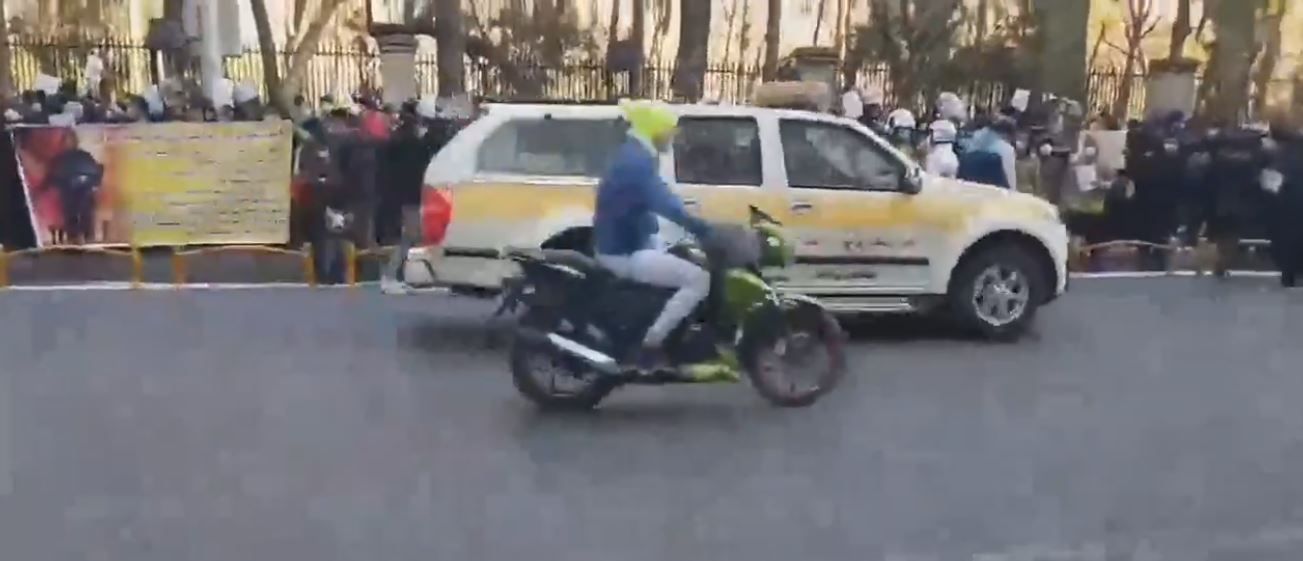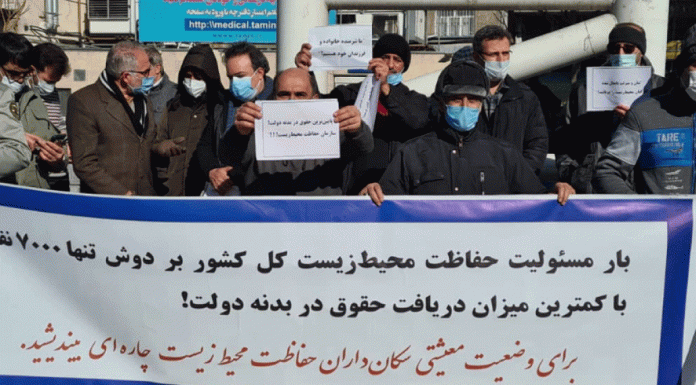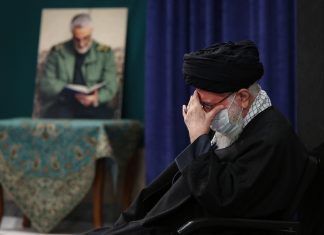By Kayhan Life Staff
Iranian Department of Environment employees held a protest outside the Majlis (Iranian Parliament) on Jan. 18, demanding a salary increase and workplace benefits.
Photographs posted on social media showed protesters carrying a banner that read: “The responsibility of protecting the country’s environment rests on the shoulders of only 7,000 people, who are the lowest-paid government employees. You must improve the livelihood of those who safeguard the environment.”
Several protesters held placards that read: “We, the Department of the Environment employees, are the lowest-paid government workers. We call on the government to enact the Civil Service Management Law and acknowledge the importance, dignity, and value of the employees of the Department of Environment.”
Although workers in various industries have spearheaded the nationwide strikes since December 2017, many government employees have joined the protests, including firefighters, telecommunication technicians, teachers, and pensioners. They demand that their salaries and wages be adjusted according to the cost-of-living index, safer work environment, and better benefits.
The latest wave of protests included workers at the Water and Sewerage Department of Tehran Province, who gathered outside the company’s headquarters, and firefighters who marched on Jan. 19 in Tehran, demanding better pay. Undated footage on social media showed firefighters protesting outside the Majlis.
Firefighters reportedly staged their protest a day after the Majlis Speaker Mohammad Bagher Ghalibaf announced that Iran’s Supreme Leader Ayatollah Ali Khamenei had approved a proposal to designate firefighters who had died in the Plasco Building fire as “martyred in the line of duty.”

According to trade union activists, most firefighters in Tehran live in rental units in undesirable neighborhoods on the outskirt of the city and have to work one or two other jobs to make ends meet.
The Department of the Environment has no legal or executive power to protect the environment. The Islamic Revolutionary Guards Corps (IRGC) and many companies operating under its auspices have exploited nature reserves, wildlife sanctuaries, and natural resources to generate revenue for its military programs.
“We cannot fulfill our duty and protect the environment, given our low salaries and wages,” a protesting employee of the Department of Environment said. “We are demanding that our salaries increase.”
Workers at the Gilan Telecommunication Company have said that despite many meetings with the company’s senior managers and provincial officials, “none of their demands have been met.”
“Disruption in health insurance coverage and the State Welfare Organization’s failure to deposit monthly benefits into our bank accounts has caused serious problems for us,” the workers added.
According to the protesting workers, the Gilan Telecommunication Company’s insurance plan has provided partial coverage to them for the past few months. They note that supplemental insurance plans do not cover essential health issues, especially for their families, forcing them to pay for medical care out of their own pockets. Most workers cannot afford to pay for doctor’s visits, prescriptions, and hospital stays.
“We have witnessed many large gatherings in the country in recent years. Trade unions and workers have staged nearly 93 percent of these gatherings. We have only managed the existing situation so far,” Ahmad Alirezabeigi, a Majlis deputy representing the Tabriz constituency in the northwestern province of East Azerbaijan, recently said.
Jailed Iranian Environmentalist Was Tortured, Says Sister of Fellow Detainee
SPECIAL REPORT – He Returned to Iran to Help Save Its Environment. He Had to Flee.






